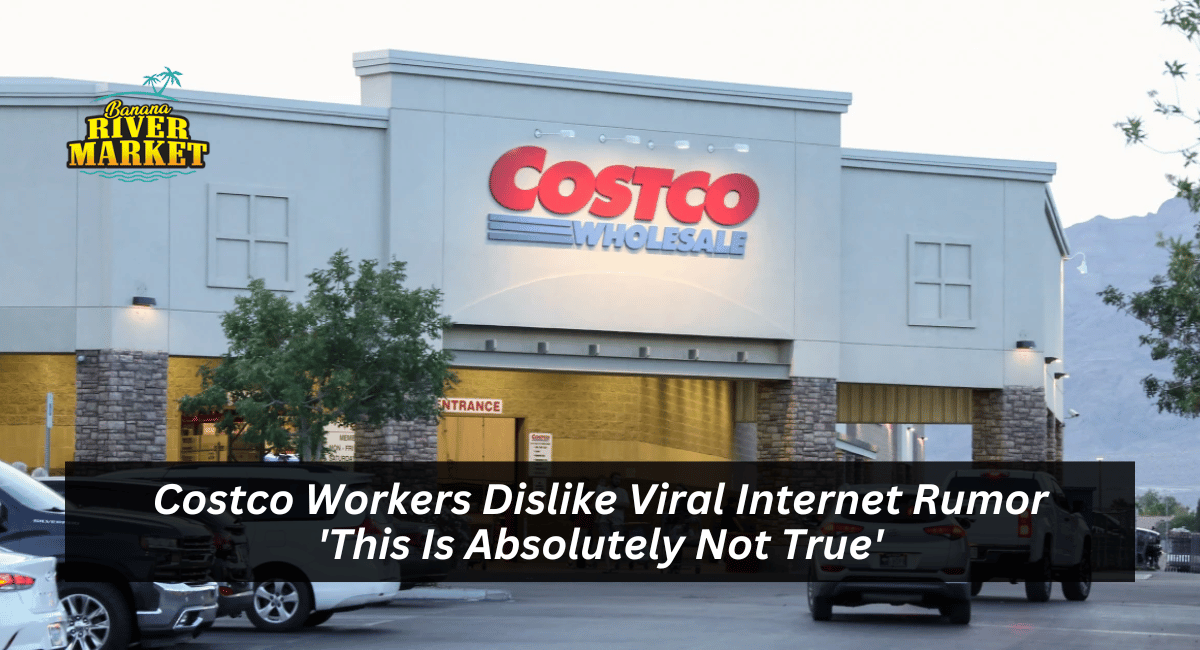Recently, a TikTok video went viral showing a man walking out of a Costco warehouse with what he claimed was free beef fat. According to the man in the video, Costco, which trims its meat, often has excess beef fat that you can ask for—completely free of charge.
He suggested that if you call ahead and request a specific amount, Costco employees would happily pack it up for you.
However, this supposed “Costco hack” is far from the truth, and Costco employees are unhappy. Workers from various locations have taken to social media platforms like Reddit to debunk the rumor, calling it misleading and false.
Costco Employees Speak Out Against the Viral Rumor
As soon as the video started making waves, Costco employees reacted quickly. Several workers voiced their frustrations on Reddit, making it clear that the information in the TikTok video is entirely incorrect.
One Costco meat department employee commented, “This is completely false!!! If somebody at Costco is doing this, they will lose their job. We sell the fat to rendering companies.” This post received nearly 500 upvotes, signaling that many people shared the same sentiment.
The employee’s comment highlights a critical aspect of the situation: Costco doesn’t give away beef fat for free. Instead, the company sells it to rendering companies, which process the fat into various byproducts.
Any Costco butcher who might attempt to give away the fat would risk severe consequences, including losing their job.
The Risks of False Claims and Social Media Virality
Many people questioned the logic behind the TikToker’s claims. One Reddit user pointed out the absurdity of the situation: “Getting a rare something for free, then advertising it online, and ruining your honeypot is the most illogical thing I can think of doing. Unless you’re trying to get paid to be an influencer…”
This comment illuminates an essential issue in social media influencers: the rush to gain views and followers sometimes leads to spreading misinformation.
If this TikTok creator genuinely received free beef fat from Costco, blasting it across the internet would only ruin the so-called “secret” for himself and others.
Influencer Culture and the Spread of False Information
Another user voiced their frustration with the current state of influencer culture, saying, “Man, I’m so tired of how low the bar is for ‘influencers’ these days. If this was real, you keep the secret to yourself instead of ruining it for everyone else.”
This highlights a broader issue with social media platforms like TikTok, where anyone can quickly gain a large following by posting attention-grabbing content, regardless of its accuracy. In many cases, pursuing likes, comments, and shares can spread false information, as we’ve seen with this Costco beef fat story.
The problem is more comprehensive than this one case. Over the years, social media influencers have circulated countless myths, tips, and “hacks” that turn out to be untrue.
While some of these falsehoods are harmless, others can lead to real-world consequences, such as getting employees in trouble, as this Costco situation demonstrates.
What Happens to Costco’s Beef Fat?
For those unfamiliar with how Costco handles excess beef fat, it sells it to rendering companies. These companies use the fat to create various byproducts, such as grease, which can be used in animal feed, soap making, and even biodiesel production.
So, no, Costco doesn’t offer customers free beef fat. Any employee caught doing so could face serious repercussions, including losing their job. Costco workers wanted to emphasize this critical point as they tried to debunk the viral video.
Why Spreading False Information is Harmful
While it might seem minor, spreading false information on social media can have serious consequences. In this case, Costco employees are in a difficult position.
Customers who see the TikTok video might show up at their local Costco asking for free beef fat, only to be turned down. This can lead to confusion, frustration, and even negative reviews for the store—none of which are the employees’ fault.
Moreover, if someone did receive free beef fat due to a misunderstanding or error, broadcasting it to millions of viewers on TikTok can cause more harm than good. It creates false expectations for other shoppers and puts unnecessary pressure on Costco workers to fulfill these requests, separate from their jobs and company policy.
The Power of Social Media and Responsibility
This incident serves as a reminder of the power of social media and the responsibility of being an influencer. With the ability to reach millions of people in seconds, content creators need to be mindful of the information they share.
Misinformation, whether intentional or not, can ripple effect, impacting businesses, employees, and even consumers.
In the case of the Costco beef fat video, the TikTok creator’s claim may have been motivated by the desire for views and likes. However, this misinformation can hurt employees and create unrealistic consumer expectations.
Conclusion
While the idea of free beef fat from Costco may sound like an appealing “hack,” it’s not true. Costco employees have clarified that the company does not offer beef fat for free. Instead, it is sold to rendering companies, and any employee caught giving it away risks losing their job.
This viral TikTok is just another example of the dangers of misinformation in the influencer world. Social media can be a powerful tool for sharing helpful tips and hacks, but customers must they’re sharing be accurate.
After all, the last thing anyone wants is for their video to lead to confusion, frustration, or even job loss for someone else.
READ MORE: Mars Crunchyizes Skittles and Kraft Heinz Solves Quesadillas

